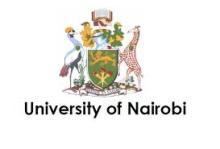Resource information
Rehabilitating degraded rangelands using enclosures offers various benefits to agro-pastoral households. However, enclosure benefits cannot be generalized as there are variations across dryland ecosystems and societies. This study assessed the qualitative and quantitative benefits derived from rehabilitating degraded rangelands using private enclosures in Chepareria, West Pokot County, Kenya. Dry-season grazing reserves, healthier livestock, improved livestock productivity, easier livestock management, food security, reduced animal losses, ecosystem services, land ownership, independence and improved standard of living were the main qualitative benefits from private enclosures identified. Quantitative benefits were manifested through various enclosure enterprise combinations, sale of enclosure marketable products and adoption of alternative income generating activities. They included the sale of livestock and livestock products, maize, wood cutting, grass cuttings, contractual grazing, grass seeds, poultry products, fruits and honey, amongst others. Livestock production directly accounts for 42·4% of the total enclosure income and is the main source of livelihood in Chepareria. There was a significant trend of increasing total enclosure income with enclosure acreage (p ≤ 0·05) while enclosure age was insignificant. Enclosures cushion households against climatic shocks such as drought by providing additional flexibility in land, fodder, livestock management and the uptake of various income generating activities. We conclude that enclosures have the potential of contributing to resilience as attested from the benefits reported in this study. However, private enclosure tradeoffs such income differentiation, reduced communal land and conflict have implications on how the ecological and socio-economic aspects may be impacted as the establishment of private enclosures in Chepareria continues. Copyright © 2015 John Wiley & Sons, Ltd.


